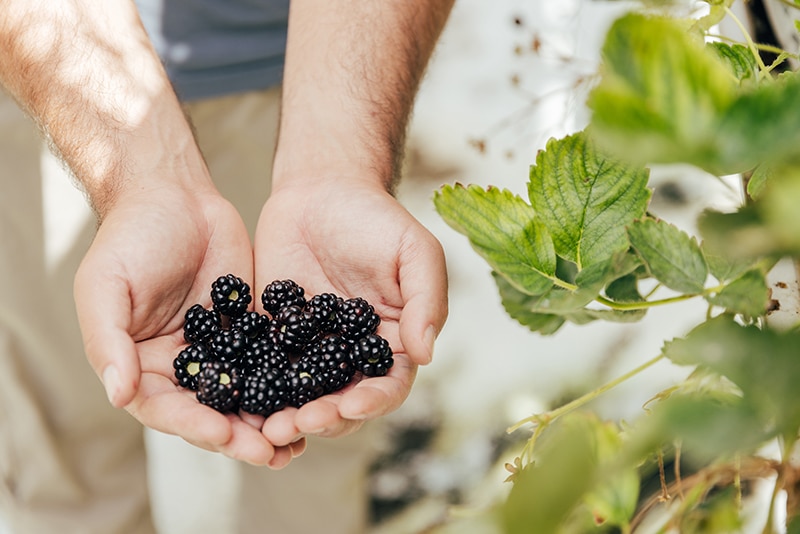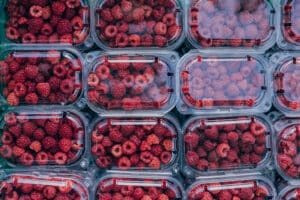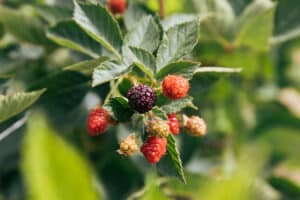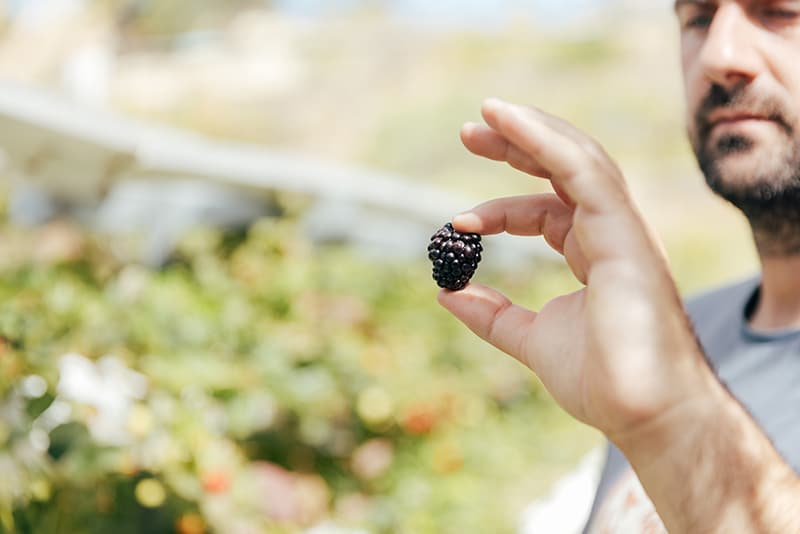Over the past 50 years, thousands of people have left the villages of Troodos. But one young man is restoring community life and land, with berries finds ALIX NORMAN
In the past, the mountain communities of Cyprus were thriving places. Hundreds of villages across the Troodos range were home to thousands of residents: people who worked land that had been in their families for centuries. For generations, they tended their flocks and fields, vineyards and orchards, groves and crops. And then, over the last few decades, everything changed…
Nicolas Valanides is just 29. But he well recalls his grandparents’ memories of village life back in the day. “They were farmers themselves,” he reveals. “Not professionally, but in the way that everyone was back then: as a means of feeding the family and avoiding hunger and poverty. Fruit trees, beans, tomatoes, grapes and almonds – they grew everything; preserving and pickling for seasonal necessity. It wasn’t glamorous,” he adds. “But it was life. And it was good.”
Their son followed in the family footsteps as a fruit and vegetable seller. Nicolas remembers rousing at 2am each morning to help his father: “Waking in the pitch dark to set up our wares in the harsh conditions of the Nicosia fruit bazaar – not fun at all!”
But these early experiences and family memories have shaped who he is today. And as Nicolas marries past wisdoms and present knowledge to reinvent sustainable agriculture in Troodos, he hopes to rejuvenate the island’s once bustling mountain villages…
“I launched Mountain Berries Pitisllia in 2018,” explains the horticultural expert, who holds a Bachelors in Agricultural Sciences, a Masters in Plant Biotechnology, and is currently working on a PhD thesis on ‘smart farming technologies on sustainable small fruit production in Cyprus’. “I wanted to see if there was a way to grow a profitable, sustainably-farmed berry crop that could compete with imports. And, at the same time, help revitalise the mountain communities: restore their roots by bringing people back to the land and the villages.”

“For us, sustainable agriculture means growing more with less – similar to what our ancestors did,” says Nicolas. “For instance, we keep our chemical pesticide use to a minimum to ensure residue-free fruits; we employ organic methods to protect our crops, using beneficial insects and natural sprays, especially when we start harvesting. We also refrain from using herbicides in order to guard the natural and beneficial environment of the border plants. And we perform minimal tilling so that the soil structure remains rich in organic matter. Slowly, slowly,” he adds, “we’re making the land more healthy: restoring the richness of the past while improving the soil for future generations to return.”
The resulting berries are steadily winning over local consumers. “Berries are superfoods,” says Nicolas. “Packed with vitamins and antioxidants, they’re also low in sugar – ideal for those looking to boost their health and wellbeing. And the berries we’ve chosen are loaded with potassium, magnesium, vitamins C and K, fibre, and prebiotics; as well as being high in the anthocyanins that have been proven to fight diabetes, inflammation, obesity and cardiovascular disease.”

“Initially, we had no clue if our methods of sustainable cultivation would work in this area. Unlike most famers who try to bend nature to their will, we’re growing in cooperation with the earth: using few interventions, limited water, and relying on natural pollinators such as bees and reptiles.”
Based between the villages of Chandria and Agridia on a hill Nicolas refers to as ‘Kaminajia’, Mountain Berries is very much a family venture. “My brother and I run our farms together, with the help of two Cypriot and three Vietnamese employees. My wife and my sister also help out with packaging and office work,” he adds. “And this support has meant we’ve already been able to expand our presence to Kyperounta and a couple of other mountain villages, involving more people and restoring more land.

Already, Nicolas’ venture is producing the tastiest berries on the island. But in time, he hopes to contribute to the bigger picture. “The communities of Troodos were once vibrant and lively,” he concludes. “People lived, worked and loved here – made their entire lives in and around their village. And much of that depended on fruit and berries – the orchards and vineyards that provided a solid living for these communities. With Mountain Berries, we hope to restore the land to its former glory, and encourage people to return to their roots. For me, that’s going to mean years of work, endless late nights and early mornings – just like my father and grandfather before! But it’s worth it, I think.”
For more information on Mountain Berries Pitsilia, or visit https://www.mountainberriespitsilia.com/ or the Facebook page ‘Mountain Berries Cyprus’







Click here to change your cookie preferences